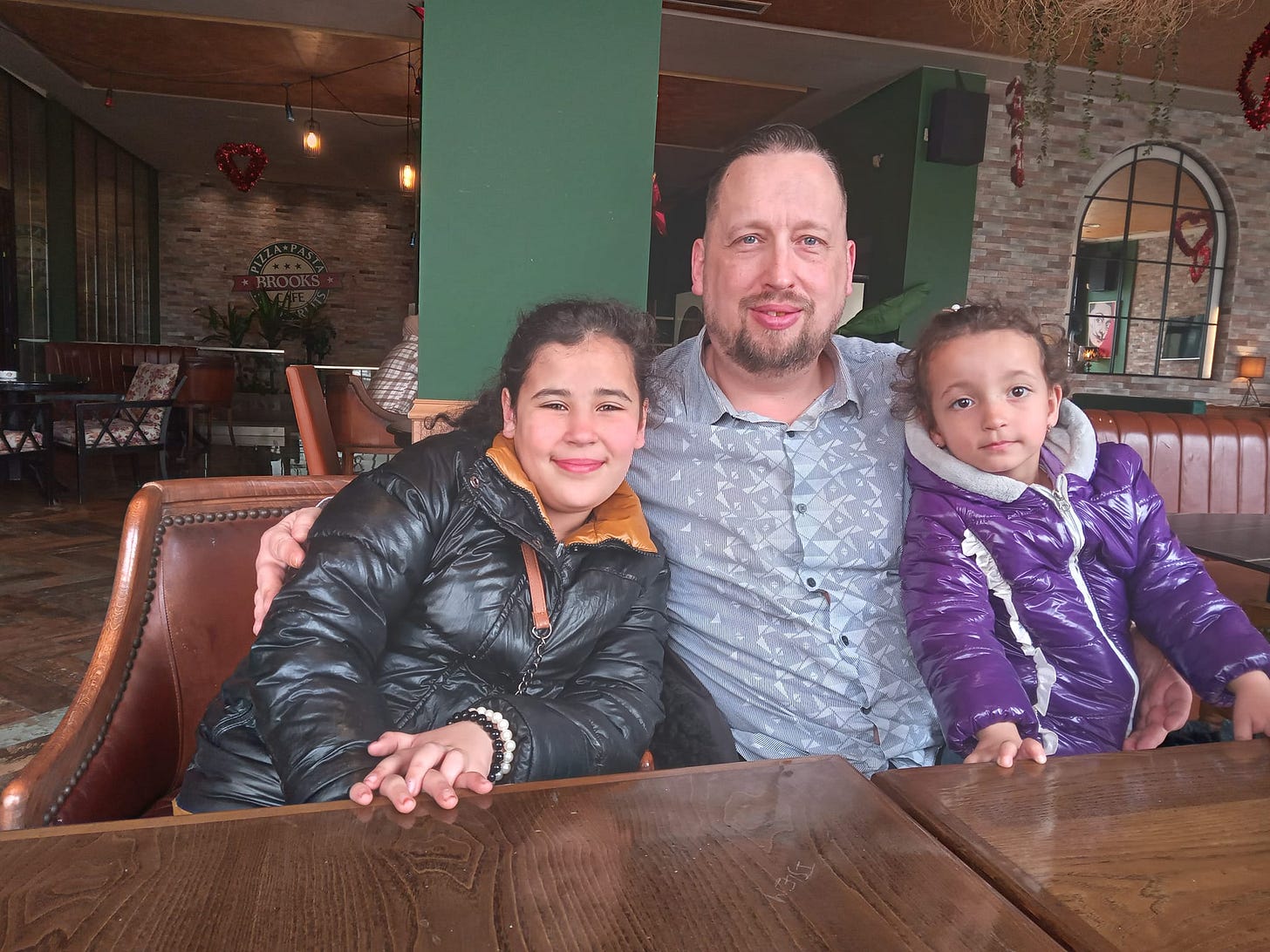When My Daughter Quoted My Own Curriculum
Two years ago, I sat across from my then-nine-year-old daughter Nour at Café Sidi Bouhdid in the old medina of Hammamet, Tunisia—a place full of coastal charm, sunlight, and history. We were celebrati
Two years ago, I sat across from my then-nine-year-old daughter Nour at Café Sidi Bouhdid in the old medina of Hammamet, Tunisia—a place full of coastal charm, sunlight, and history. We were celebrating a big milestone: Nour had just completed fourth grade and scored 19.51 out of 20 on her final exams—a nearly perfect score under the French academic system, which translates to an A+ in the U.S.
Proud doesn’t even begin to describe it.
As we sat sipping drinks and soaking in the moment, she began to tell me about her different classes. Then, with the casual confidence only a child can deliver, she said something that stopped me in my tracks:
“We learned about recycling today.”
Her mom, who was sitting with us, looked at me and smiled. “Isn’t that what you do? Recycling?”
I chuckled, but my answer was a little more complicated.
“I do work in sustainability, and recycling is part of that,” I told her, “but it’s bigger than just plastic bottles and paper. My company works on ESG and GHG reduction plans for corporations, and we help build sustainable development programs for countries—especially in the developing world.”
Then I turned to Nour and said something I’ll never forget:
“You know the lessons you’re learning in school? I helped create them.”
She looked up at me, wide-eyed.
I explained that I had contributed to Tunisia’s national sustainability education efforts, supporting the Ministry of Sustainability by providing the framework for a youth awareness and recycling curriculum. It was adapted from an environmental education program I’d previously seen used effectively by the U.S. Environmental Protection Agency. I had handed over those original program documents to the Minister at the time—documents that became the seed for what Nour and thousands of other Tunisian students are now learning.
Later, I was asked to oversee many of the country’s ongoing sustainability projects. They even provided me with internal project documents—all in French. Since I primarily operate in English, that was its own challenge, but we made it work.
And yet, nothing in my professional career compared to the pride of seeing my own daughter benefit from that work.
The Takeaway: Sustainability Starts at Home
What struck me most that day was this:
The cultural shift around sustainability often begins in the home—but sometimes, it begins with our children.
Children have a special way of influencing their parents. They don’t always use logic. They use hope. They ask hard questions. They hold us accountable in ways no one else does.
That moment at the café reminded me that sustainability is not just about frameworks, dashboards, or government policy. It’s about legacy. It’s about leaving behind a planet that’s healthier, more equitable, and more resilient—for Nour, for her younger sister Sandra, and for generations still to come.
And as Nour proudly explained the basics of recycling, I couldn’t help but smile—not just as a sustainability expert, but as a father.
Teaching the Future
After she finished, I started telling her about upcycling and the circular economy. Her mother interjected, laughing a little, “She’s only nine!”
I just smiled and said, “That’s okay. She’s smarter than you think. Even if she doesn’t fully understand now, she’ll remember these lessons.”
Because I don’t just talk about sustainability. I live it.
And that day, my daughter unknowingly quoted a curriculum that I had helped shape.
What more validation could I ask for?
About the Author
Steven W. Pearce is an award-winning global sustainability expert, author, and the Founder & CEO of Pearce Sustainability Consulting Group (PSCG), recognized as the Best Sustainability Consulting Firm in California and the Best SDG Impact Measurement and ESG Reporting Company in the USA. With over 13 years of experience, he has advised governments, Fortune 500 companies, and international institutions including UN agencies and the U.S. Department of Defense. Steven is the creator of the Predictive Sustainability Intelligence (PSI) platform and is currently leading sustainable development initiatives across the MENA region, Sub-Saharan Africa, and North America.
He is the author of From Warming to Warfare: Climate Change and the Road to World War III and the upcoming Make Green by Going Green: The Executive's Guide to Profitability Through Sustainability. Steven also publishes insights on ESG, climate policy, and development through his Substack newsletter, Strategic Earth.
Steven holds a Bachelor of Integrated Studies in Sociology, Anthropology, and Political Science from Weber State University, graduating with university and departmental honors. He also holds a Master of Business Administration (MBA) in Sustainability Management and a Master of Project Management (MPM). He is currently pursuing a third graduate degree in Global Development Practice at Harvard University Extension School, with additional certifications from Duke University, the Wharton School of the University of Pennsylvania, and the United Nations.
Above all, Steven is a proud father of two daughters in Tunisia—Nour and Sandra—who inspire his mission to build a more just and sustainable world for future generations.



